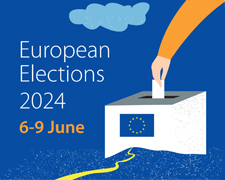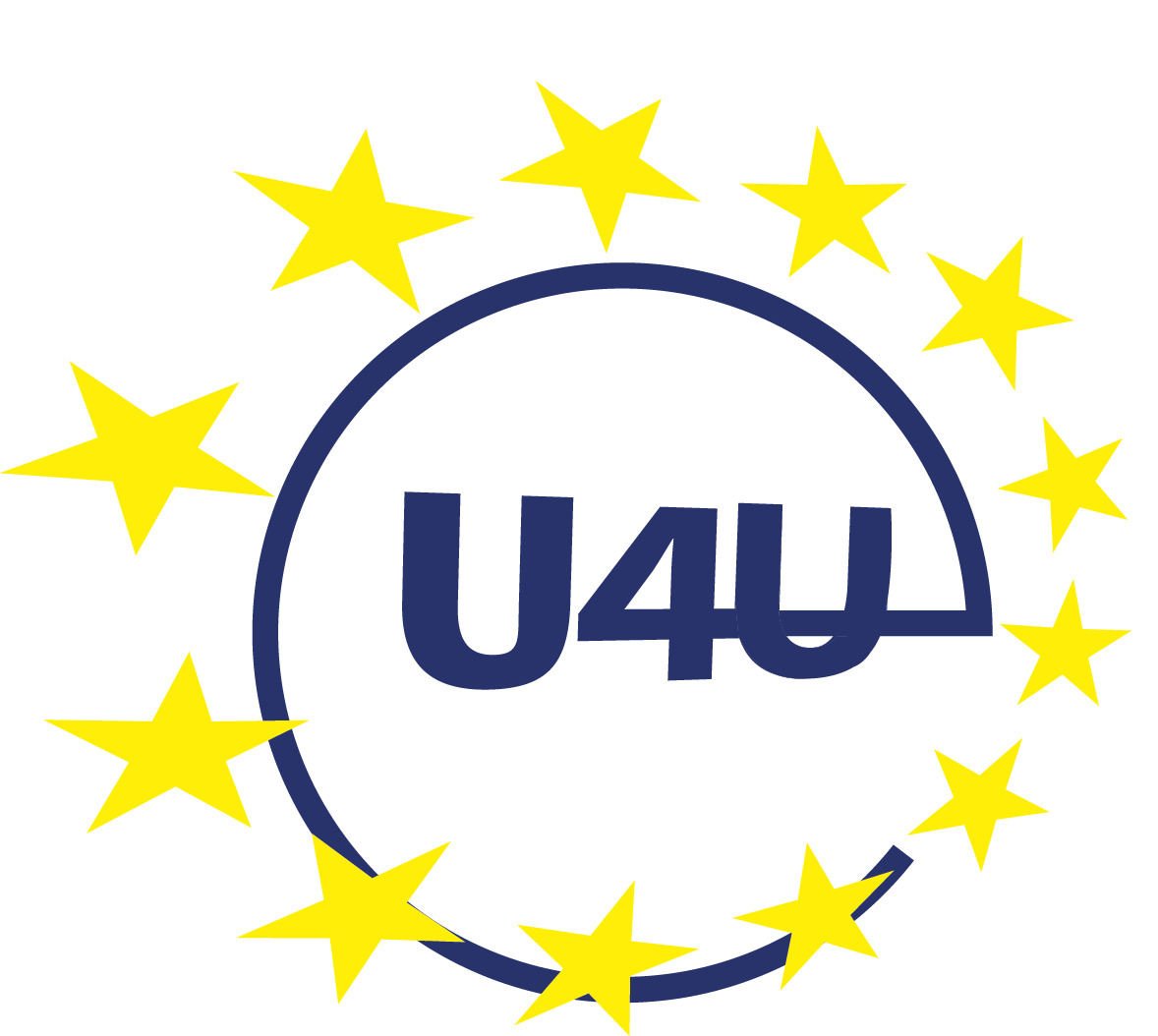The political legacy of Jacques Delors

Europeans mourn one of their greatest architects. The European Union has lost its “honorary citizen”, an honour he shared with Jean Monnet and Helmut Kohl, who contributed to the reunification of Germany. The single market, the euro, Schengen, enlargement, Erasmus, the Structural and Cohesion Funds, social dialogue, the creation of the Committee of the Regions: these major advances in European integration were achieved thanks to the vision, the political courage, the perseverance, and the tireless efforts of Jacques Delors during his ten years at the helm of the European Commission. As he liked to say, his actions were based on his three-pillar approach: competition that stimulates, cooperation that strengthens and solidarity that unites.
These concrete achievements were fuelled by deep European convictions that led him to create the conditions for working together on our continent. He always kept a close eye on the progress of the project of a united Europe, worried by its failures, regretting its departures, but tirelessly hoping for a revival that he felt was more necessary than ever.
Beyond his historic contribution to the construction of Europe in the tradition of the founding fathers, Jacques Delors made his political commitment a noble task. As a Member of the European Parliament elected in 1979 and then as French Minister for the Economy and Finance under President François Mitterrand, he was an active and committed civil servant, always demonstrating his commitment. In his work with associations, in trade unions, within the CFDT, and in politics, within the Socialist Party, he was a faithful activist, driven by moral ideals in the pursuit of the common good.
At the European Commission, he worked to build the social Europe he had called for. He famously said that “nobody falls in love with a common market”. The market is necessary to serve a wider social purpose. It was in this spirit that he initiated the first Val Duchesse social summit in 1985, bringing together European trade union and employer representatives. These meetings laid the foundations for the European social dialogue, which needs to be relaunched, and we can only welcome the fact that the Belgian Presidency of the European Union has included in its work programme a new social summit to put Europe back on the road to social progress.
This is a particularly important task in this European election year if we are to find real solutions to real problems, particularly the growing poverty and risk of social exclusion faced by people in all our Member States.
We would like to dedicate these words to this great man, whom some of us had the honour to serve with pride. We would also like to express our deep gratitude to him, but also our commitment to take up his political legacy with dignity, to continue his European action to unite Europeans and, above all, to defend the European civil service for which he held it in such high esteem.
Staff representation at the EEAS:

Structures are slowly being put in place in a difficult context…
The elected members of U4U/USHU were actively involved in the adoption of texts concerning staff at headquarters and in delegations, in particular on the organisation of hybrid work, special leave and the prevention and combating of harassment. Thanks to our joint efforts, progress has been made, even if it does not always meet expectations.
This was the case for the social dialogue on hybrid working in delegations, where it was far from being accepted due to the nature of the tasks considered incompatible. As a result of the negotiations, agreement was reached on one day of teleworking for expatriate staff in delegations and a text is still awaited for local staff. We have also fought for a dynamic human resources management policy in line with today’s legitimate expectations, while the administration has taken the view that colleagues in delegations are privileged and should not therefore benefit from further measures considered as additional advantages. This is not a “bonus” at all, but the introduction of a modern management tool aimed at achieving a better work-life balance while ensuring greater efficiency in the workplace. Over time, experience will show that teleworking is not incompatible with the work in delegations and, if necessary, the agreement will have to be renegotiated on an objective basis, with a rendez-vous clause in 2025. In the meantime, as in the Commission, a joint committee has been set up to monitor implementation.
Local staff are today deeply concerned about the scandalous situation of net losses in Provident Fund (PF) contributions linked to fluctuations in the financial markets. For most local staff, the PF compensates for the lack of a pension scheme when they retire. To date, there is no compensation for local staff who have suffered losses as a result of investments made by DG BUDG. A growing number of local staff consider that the EEAS and the Commission do not respect the conditions of employment which imply compulsory membership of the PF (with a few rare exceptions) and tend to underestimate the impact of this issue, which has provoked strong reactions in several delegations. The Commission’s Local Committee Hors Union and the EEAS Staff Committee raised the issue with the EEAS administration at plenary sessions in mid-October. At the same time, the EEAS OSPs issued a joint message to all staff concerned. The EEAS aims to strengthen governance by involving local staff more in the management of the FP in the future, but in reality, nothing has been done. On the contrary, it seems that the EEAS does not intend to make any changes to the legal basis before 2025, which only adds to the growing sense of frustration among local staff. This is unacceptable and we will continue to take action in defence of our colleagues.
The EEAS also faces a difficult budgetary situation. The agreement reached by the Council and Parliament on the 2024 budget does not allow our institutions to function properly in the face of geopolitical crises. The budgetary authority has taken a restrictive approach in line with the Council’s position, leaving the EEAS underfunded by €114 million without any additional staff. The potential consequences of this situation remain to be analysed. This means using human resources more flexibly, setting negative priorities and more rigorously analysing the impact of new demands that may arise as a result of geopolitical crises. A task force has been set up to identify savings to be made and, in the longer term, to review the footprint of delegations, with all the consequences for staff, starting with local staff in the event of closure.
In this context, U4U/USHU will take part in this discussion and act in the interests of staff by recalling the principles and values that guide our actions.
Freedom of expression for officials and other servants of the European Union:

The duty of loyalty as a limit.
The Commission has recently published guidelines on the use of social networks by staff, particularly when expressing their views on matters within the remit of the European institutions.
These issues are obviously so vast and potentially controversial (just think of environmental protection and the development of electric cars, public health and vaccination issues, the war in Gaza, etc.) that it is sometimes difficult to draw the line between what is allowed and what is not.
It is therefore interesting to return to the question of our freedom of expression as agents (of whatever status) of the European institutions. We will, of course, start by pointing out that this freedom is protected on several levels.
First, like all citizens, we enjoy the protection of the Charter of Fundamental Rights of the European Union and the European Convention for the Protection of Human Rights and Fundamental Freedoms. This protection is enshrined in Article 6 of the Treaty on European Union. No European rule (and the Staff Regulations are no exception) can therefore be interpreted without reference to the provisions of these fundamental texts.
At a second level, Article 17a(1) of the Staff Regulations states that ‘an official has the right to freedom of expression, with due respect to the principles of loyalty and impartiality‘.
It is here, therefore, that some of the limitations on the freedom of expression of EU officials are most evident.
In this article, we will focus in particular on the principle of loyalty.
According to the case-law, the duty of loyalty “requires an official not only to refrain from any conduct detrimental to the dignity of his office and to the respect due to the institution and its authorities, but also, all the more so in the case of a high official, to behave in a manner that is above suspicion, so that the bonds of trust between the institution and himself are always preserved“. (See in particular the judgment of the CST in HG v European Commission and all the case-law cited on this page: https://curia.europa.eu/common/recdoc/repertoire_jurisp/bull_9/data/index_9_03_01_03.htm)
As we have seen, the duty of loyalty comprises, on the one hand, a general duty to uphold the dignity of one’s office, in particular by refraining from any statement or conduct likely to undermine it (see also Article 12 of the Staff Regulations) and, on the other hand, a duty to preserve the relationship of trust that must exist between the Union and its institutions, on the one hand, and its staff, on the other. We cannot therefore warn too strongly against public questioning of the positions taken by the Union’s authorities, particularly if it is radical or even offensive, or if its authors occupy high positions.
Does this mean that all debate within the staff would be banned and that the expression of positions contrary to those officially held by the institutions would be prohibited? Fortunately, we are a long way from that, and Europe naturally continues to believe in the democratic and moderating value of debate and the diversity of opinions, and to regulate its activities on the basis of these values.
As a trade union, we would add that defending freedom of expression when it is threatened is also one of our most cherished commitments. It is in the interest of both our institutions and each of us to maintain open debate and dialogue on the issues that concern us.
However, the EU Charter of Fundamental Rights and the European Convention for the Protection of Human Rights and Fundamental Freedoms also recognise the legitimacy of setting certain limits to freedom of expression. The most familiar of these limits in our daily lives are, for example, the prohibitions in certain national laws against insult, libel, slander, and even incitement to violence or racism, or apologies for terrorism. No, we can’t say everything, and that’s probably for the best.
As a general rule, such restrictions must be provided for by law (or sufficiently clear regulatory text), be necessary (for example, to maintain confidence or prevent violence) and be proportionate.
The limits imposed by the duty of loyalty on the freedom of European Union officials fall into this category.
Do you have a problem or question about your freedom of expression? We’re here to help: HR-REP-PERS-U4U-ASSISTANCE-INVIDUELLE@ec.europa.eu
In the next Link in February 2024: What should I do if I want to stand for election?
Activate your civic rights!

In 2024, the European elections will be held on 9 June and the Belgian municipal elections on 13 October. The law grants the right to vote to foreigners residing in Belgium for the latter and to EU citizens for the former.
Unfortunately, too few of those eligible to vote have chosen to exercise their right as citizens.
This is why U4U is launching an information campaign on the subject.
It is important to participate in local political life as a voter. When U4U lobbies local authorities, for example for European schools, it is not uncommon to be told: “You know, I represent my constituents; and Europeans don’t vote”. And yet, if we were to exercise our rights, together with our spouses and young adults, we would represent a considerable mass, more than a hundred thousand voters. Then our vote must count.
U4U will keep you informed of its actions in this field.
U4U publishes its Vademecum on the Appraisal-Promotion Process

Your self-evaluation 2024, with us!
Many of you attended our self-evaluation preparation session on Wednesday 10 January. We shared our vade-mecum, points to watch out for, tips and tricks for your self-evaluation and took the time to answer your questions. For all staff: Here is the link to the VADE MECUM on our website, which covers every stage of the promotion exercise, from self-assessment to the publication of the final list of promoted staff.
SCIC: negotiations on working conditions in hybrid meetings

| At SCIC, negotiations on working conditions are underway. For the time being, in line with management’s wishes, negotiations are focusing only on hybrid meetings. Indeed, management wanted to give priority to negotiations on this part of the working conditions, with the aim of concluding them in October 2023. As the rules for hybrid meetings were set in an emergency during the pandemic and as knowledge has progressed since then, it makes sense to review these rules. The Interpreters’ Delegation (ID), as the staff representation, participated constructively in all the meetings and submitted a detailed text proposal at an early stage in the process. It is worth noting, however, that certain factors, such as the frequency of negotiation meetings, are not within the DI’s remit. If the European Parliament (EP) was able to find a solution acceptable to all parties, what are the problematic aspects for SCIC? On the one hand, SCIC has more meetings to cover than the EP, and the diversity of participants is greater. On the other hand, the budgetary resources available to SCIC are inferiour to those of DG Linc in the Parliament. The EP’s solution for guaranteeing good quality sound (sending compliant microphones, testing ahead of meetings, and a team of meeting managers who handle the ‘platform’ aspects during the meetings) is said to be too expensive for SCIC. However, if we put into the equation the savings made by the Commission thanks to hybrid meetings (travel, hotel and per diem costs), it is rather surprising that not even part of this money could be used to guarantee the hearing health of interpreters and participants. In addition, according to SCIC, there seems to be a certain reluctance in the upper spheres of the Commission regarding the system adopted by the EP: the “guarantee to be interpreted only if the equipment and set-up comply“. The reason for this reticence is apparently a so-called democratic deficit due to the link between the compliance with certain rules and the right to be interpreted. However, it is difficult to understand how this health protection measure would be more detrimental to democracy than a badge to access Commission meeting rooms or the fact that for certain languages there is simply no interpretation foreseen in the meeting. As long as good sound quality cannot be guaranteed, hearing health must be protected by limiting exposure. The good news is that it is possible to reconsider exposure thresholds in a responsible way and still satisfy the needs of SCIC. What’s more, limiting exposure will also help avoid that always the same interpreters are exposed to platform meetings. As the risk analysis which the ID had for some time been requesting has finally been announced for January, it would seem wise not to increase the risk before the results of this study are available. Unfortunately, after months of awareness-raising by SCIC, it is a sad reality that at hybrid meetings hardly anyone complies with the microphone recommendations. Contrary to what we thought some time ago, we now know that headsets are to be avoided. Computer and mobile phone microphones as well as wired telephone headsets even more so. A small, compliant microphone can be found in electrical goods stores and on online websites for around thirty euros. A list of compliant and recommended microphones can be found here: |

| It seems that the Commission does plan to send a large number of microphones… to its own staff. This is certainly a nice gesture and should be appreciated. But is this expenditure really well targeted? Shouldn’t priority be given to those for whom it is impossible to come to the meeting room in person? It is definitely a good thing that everybody will have the right equipment for online exchanges, but please, if you are in Brussels, for large meetings with interpretation, COME TO THE MEETING ROOM. You will have no connection problems, you will keep in touch with your colleagues, and you will spare everybody’s ears, interpreters’ and participants’ alike. |
Disability and agencies: a silent struggle

In the workplace, disability situations affecting employees or their families often remain in the shadows.
Despite the existence of a single point of contact to centralise disability-related enquiries and information, some colleagues are unaware of its existence. We are still regularly confronted with stories of distressed families struggling to navigate the administrative maze.
A single point of contact has been set up for employees, pensioners and their dependants for all disability issues, help and advice.
Testimonies and realities from the field
Real-life cases such as that of A., the father of a severely disabled child, who waited more than two years for social assistance, or B., who was faced with a substantial bill for speech therapy sessions at school for her autistic son, illustrate the difficulties encountered. The situation is often discouraging, people are unaware of the assistance available and the administrative procedures are full of pitfalls.
Towards greater awareness and accessibility
In particular, the intranet sites of the decentralised agencies do not always communicate clearly on this point. What’s more, disability remains a taboo subject, not to mention the fact that parents often find it difficult to recognise the difficulties their child or relative is facing.
However, disability-related medical expenses may be reimbursed by the Joint Sickness Insurance Scheme (JSIS), sometimes subject to prior approval and/or reimbursement.
In the case of children, the allowance may be doubled if you can prove that your child has a disability (mental, physical, intellectual or sensory impairment).
Finally, financial assistance is generally available for non-medical expenses.
What are we talking about?
Non-medical expenses may relate to the place of residence (specialised institute, sheltered work environment, day centre, etc.), transport and equipment (stair lift, bath, guide dog, car adaptation, adapted pram for a very severely disabled child, etc.), care, schooling and educational needs.
For example, the cost of education in schools that offer special programmes for disabled children can be considered as non-medical expenses.
he possibility of financial assistance exists and has been defined in the Conclusion 281/20. One thing to bear in mind in this case is that Article 1.1 states: “The institutions may grant assistance in accordance with Article 76 of the Staff Regulations. Subject to the availability of appropriations, assistance may be granted to disabled staff members and/or their dependants. The amount of such appropriations shall be determined annually“. It refers to “institutions”. Finally, for financial assistance for anything “non-medical“[1] , If you work for an agency, you should contact your agency’s human resources department.
My second point is the reference to “disability“. According to Article 1d(4) of the Staff Regulations, a person is deemed to have a disability if he or she has “a long-term physical, mental, intellectual or sensory impairment which, in combination with various barriers, may hinder his or her full and effective participation in society on an equal footing with others“. In particular, “to be entitled to assistance, the person concerned must have a disability of at least 20%, as assessed by the institution‘s medical officer[2] “.
As a reminder, the European Schools (Brussels, Luxembourg) have an intensive support programme for children with special needs. Sometimes there are local schools that integrate children with special needs, but this depends on each country/city.
In situations where the European or local schools are not able to integrate these children under the right conditions, it is advisable to contact the single entry point which will guide you through the process.
In conclusion, although structures and tools are in place, their effectiveness is hampered by a lack of awareness and accessibility. A concerted effort on the part of authorities, employees and decision-makers is essential to improve the situation of disabled people and their families in the workplace.
If you have a disability (potential or actual), the key word is: go through the single entry point. Our colleagues will help you.
E-mail: HR HANDICAP DISABILITY
Postal address:
European Commission:
HR.D.2 Assistance to active and retired personnel
PLB3 01/164
1049 Brussels, Belgium
Tel: 02/29 712 33
And if you need anything, don’t hesitate to contact us at HR-REP-PERS-U4U-ASSISTANCE-INDIVIDUELLE@ec.europa.eu.
[1] It is sometimes difficult to know what is potentially covered by the medical service and what is covered by social assistance. Do not hesitate to ask the PMO and the Single Point of Entry if you are in any doubt about this distinction. Example: Speech therapy sessions at school.
[2] IThis raises the question of who is the institution’s medical officer if the person concerned works in an agency, for example.
Important change for Belgian tax residents:

New childcare certificate
Parents of children resident in Belgium for tax purposes should take note of this important update! Following a change in the law, a new tax certificate for childcare costs has been introduced. The aim of this certificate is not to make life easier for parents, but rather to fulfil a legal obligation. Childcare organisations, including OIB, are now required to send data directly to the Belgian tax authorities…

For those wishing to benefit from the tax reduction for the 2024 tax year (on income earned in 2023), it is essential to complete a special questionnaire to ensure that the information is submitted correctly and on time. This only applies to parents resident in Belgium for tax purposes.
This only applies to taxable persons in Belgium.
Important reminder: to check your tax residence, consult your Article 13 certificate via Sysper. The deadline for sending the data is 15 February 2024. Parents using childcare services should therefore act quickly to avoid any delays. To find out more about this new certificate and its implications, follow the link provided below.
U4U regrets that this requirement, although necessary, was not communicated earlier, as the relevant circular dates from 2022.
For more information on this new certificate, click here.
Discover Brussels’ social, economic and political history

U4U invites you to discover the social, economic and political history of Brussels. The next walks will be:
Saturday 27 January: “From the Béguinage to the Martyrs”
Meet at the Exki, 2 Place de la Bourse, 1000 Brussels at 10.30 a.m.
Saturday 24 February: “Brussels by the sea: the port of Brussels and the Tour&Taxis site”
Meet at the Pain Quotidien at Tour & Taxis, 86c Avenue du Port, 1000 Brussels at 10.30 a.m.
Saturday 6 April: around the Basilica
Meet at Le Lion Café, 12 Avenue de Jette, 1081 Brussels (Koekelberg) at 10.30 a.m.
Saturday 27 April: Jette, the garden community
Meet at the Welkom Café, 30 Place Cardinal Mercier, 1090 Brussels (Jette) at 10.30 a.m.
Saturday 25 May: Erasme in Anderlecht
Meet at the Maison d’Erasme, 31 Rue du Chapitre, 1070 Brussels (Anderlecht) at 10.30 a.m.
Saturday 29 June: The countryside in the heart of the city: Watermael-Boitsfort
Meet at the Les Tables De CaYuga (De Wilde Eend), 194 chaussée de La Hulpe, 1170 Brussels (Watermael-Boitsfort) at 10.30 a.m.
U4U, serving you better!

| The New Year always brings new resolutions to put into practice. For 2024, U4U’s main resolution is to serve you even better. To achieve this, we have created direct links between you and the team that can best help you. So …: – If you require personal support, please email to HR-REP-PERS-U4U-ASSISTANCE-INDIVIDUELLE@ec.europa.eu – If you would like information about training or coaching, please email to training.u4u@gmail.com – If you would like to contact colleagues in Luxembourg, please email to rep-pers-osp-u4u-lu@ec.europa.eu – If you would like to contact colleagues in the European Parliament, please email to u4u@europarl.europa.eu – If you wish to contact colleagues in the External Service, please email to u4unity@eeas.europa.eu – If you have any other questions, please send an email to our general mailbox: rep-pers-osp-u4u@ec.europa.eu We invite you to visit our website frequently and to join our Facebook page so that you have easier access to the latest news from the union about the training/coaching/workshops on offer, the conferences/cultural walks in Brussels and the events we organise throughout the year, as well as more general information about our statutes and our articles and reflections on the issues that concern us all. |